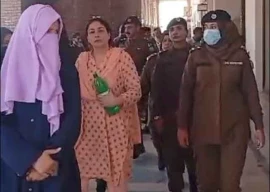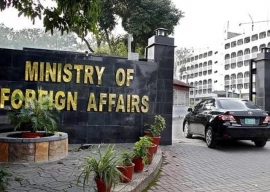
Stabilisation and development of Afghanistan is a major priority for the European Union (EU), which has lost more than four billion Euros to the conflict in Afghanistan. This was stated by the distinguished German scholar Dr Christian Wagner, who is the Head of the Asia Division at the German Institute for International and Security Affairs on Tuesday.
He was delivering a lecture on “Europe’s Engagement in Afghanistan” at the Institute of Strategic Studies Islamabad (ISSI). Dr Christian gave an insightful overview of the European Union’s role, policy and commitment in Afghanistan.
He said that after 9/11 and with the establishment of the ISAF mission in Afghanistan, Europe has been heavily engaged in Afghanistan. The thrust of the European assistance has gradually shifted from humanitarian help and support for reconstruction to supporting priorities set out in the Afghanistan National Development Strategy, he added.
Dr Wagner, highlighting EU’s assistance in Afghanistan since 2002, said that the emphasis has primarily focused on governance, infrastructure, agriculture, rural development, health and social protection reforms.
The EU, he said, comprised different actors with diverging views and although there are disagreements among many member states regarding Afghanistan, the EU’s commitment towards the cause of the country is long-term and beyond 2014.
He was of the opinion that 2014 should not be regarded as an end to international support to Afghanistan but merely the beginning. “Mistakes made in the past particularly after the Soviet withdrawal from Afghanistan in 1989 would not be repeated,” he said.
Germany, he said, has played a crucial role in the attempts to bring stability to Afghanistan. Speaking about the Lisbon Conference on Afghanistan he said that although NATO has been actively involved in Afghanistan since 2001, the transition process has begun with Afghan security forces handed over the control of seven provinces.
In what is being portrayed as “NATO-Afghan partnership”, he said it was made eminently clear at the conference that the international forces and particularly the EU would serve there indefinitely.
Former ISSI chairperson Inamul Haq, in his welcome address, said that Afghanistan was of particular interest to Pakistan because all foreign forces in the country intend to leave it by 2014, thus allowing Afghanistan to once again become an independent state and rightfully regain its sovereign status.
Dr Martin Axmann, Resident Representative Hanns Siedel Foundation, was optimistic that the talk would help highlight the fact that Europe is heavily engaged and committed to Afghanistan’s future.
Published in The Express Tribune, October 5th, 2011.










































COMMENTS
Comments are moderated and generally will be posted if they are on-topic and not abusive.
For more information, please see our Comments FAQ